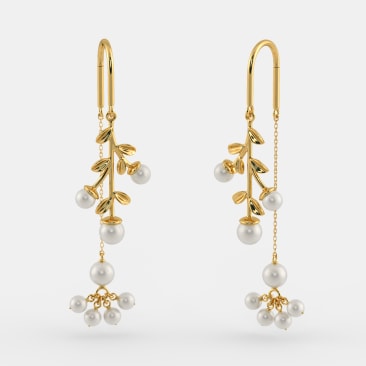Is Buying Gold A Good Investment
Gold plays an important role in shaping the economies of nations. That’s true for India’s economy too. It has been a valuable commodity for a long time in history. Gold was the universal trading currency for over 6000 years in history. The worldwide recognition of its value led to the development of the gold standard. The gold standard was used as early as 1500 years ago, during the Byzantine Empire. Until recently, the world reserve currency was gold. In 1944, the status of the world reserve currency went to the dollar. Although gold is not a primary form of currency anymore, it’s still a strong, long-term investment option. Many countries still use gold to back up their domestic currencies.
Gold is important to the modern global economy. This is evident from the fact that major financial organisations hold almost one-fifth of the supply of all of the world’s above-ground gold. This includes the prestigious International Monetary Fund. Many central banks around the world are also making efforts to add to their current gold reserves. It’s true that there were downswings and fluctuations in the gold market in the recent years. But gold’s intrinsic value makes it retain its status of a stable investment, whether it is in the form of tiny gold nose pins or gold coins. It’s a valuable addition to your investment portfolio if you evaluate its pros and cons.
Pros of Buying Gold as Investment
Amidst economic and political uncertainties, it’s quite normal to wonder if buying gold is a good investment. There are many advantages that make gold a popular investment. Here is a list of factors that makes the yellow metal an ideal option for investment:
Liquidity: The first is its liquidity. You can convert gold into cash almost anywhere around the world. Even if you have bought your gold earrings, rings, necklaces, or any other trinkets from India, it has the same value all over the world. Besides cash, gold’s universality and its liquidity are unmatched. Gold also holds its value and maintains it over time. It is important to note that the price of gold doesn’t indicate its value. This means that even when gold prices decrease, its underlying value doesn’t change much. Unlike gold, which is a great physical commodity, currency doesn’t hold any intrinsic value.
Inflation: Gold is also one of the best hedges against inflation. When inflation hits and prices rise, gold’s value rises as well. This means that during inflation, gold offers a more stable form of investment as compared to cash.
Diversity: Another advantage of buying gold as an investment is the diversity it adds to your portfolio. Having different securities in your portfolio lowers your overall risk. Also, gold’s inverse relationship with currency and stock values makes it diversify your portfolio well.
Universal commodity: The fact that gold is a universally desired investment makes it a universal commodity. Many securities of nations around the world are affected by the political chaos. Such factors, however, doesn’t affect the value of gold.
Never-ending demand: Another advantage of gold is its never-ending demand around the world. Its use in different products, such as jewellery and electronics, ensures great demand. This demand for gold stabilises and further improves its price. Also, as the demand increases, the markets can drive its price higher. Gold gets the financial spotlight for all the right reasons. Perhaps that’s why many investors consider investing in gold a sensible choice.
Cons of Buying Gold as Investment
Although according to usual wisdom gold is the cure for the soaring prices of inflation, its track record is quite blotchy. Along with its many advantages, it comes with many drawbacks and risks too. Before you decide to invest in gold, you should keep in mind that gold doesn’t earn any passive income. Unlike other forms of investments, such as stocks or bonds, you won’t earn dividends or interests from gold as an investment. The only return that you might get from gold is if you decide to sell it when its value increases over time. The physical storage space it requires is another disadvantage. It discourages many investors from buying gold. The additional expense of insuring gold to cover for damage or loss is also a drawback.
The Ideal Time to Invest in Gold
The best time to buy gold is when the economy predicts inflation, which drives down the national currency’s value. You can make more profit if you predict such drops early on. The top indicators, including a drop in the stock market and political chaos, might also indicate further deflation of the national currency. Other than that, the reserve bank’s announcements to print more local currency might indicate an ideal time to buy gold as an investment.
Even when the local currency is going strong, and you don’t expect inflation in the near future, there are limited chances of a price rise. However, if you expect an increase in market demand from industries that need gold, potential price pressure can cause price rise. The jewellery manufacturing and electronics industries are some examples that make up the market. So basically the best time to buy gold is when its price is down. And that’s irrespective of the political and economic scenario in the country.
How Much Gold Should You Add to Your Portfolio?
Buying gold is not a short-term investment. It gets returns in the long haul. Although there is no one-size-fits-all rule for what percentage of your portfolio should include gold, it really depends on the market. It also depends on your comfort with its volatile nature, your financial needs, and your investment timeline. Ideally, to buy gold, you should use the same strategies that you would use to manage your portfolio while buying other investments. Careful evaluation and planning will help you with the best gold asset allocation in your investment portfolio.
Gold is a valuable and often profitable investment as compared to many other options. However, it’s wise not to get carried away while buying the precious yellow metal. There are many ways to invest in gold. You can either buy gold directly or in the form of different gold securities. Know your options before you investing. Whatever you choose, weigh the pros and cons of each option carefully before making a decision. When it comes to reaping the benefits of gold as an investment, being aware of the details makes all the difference.




